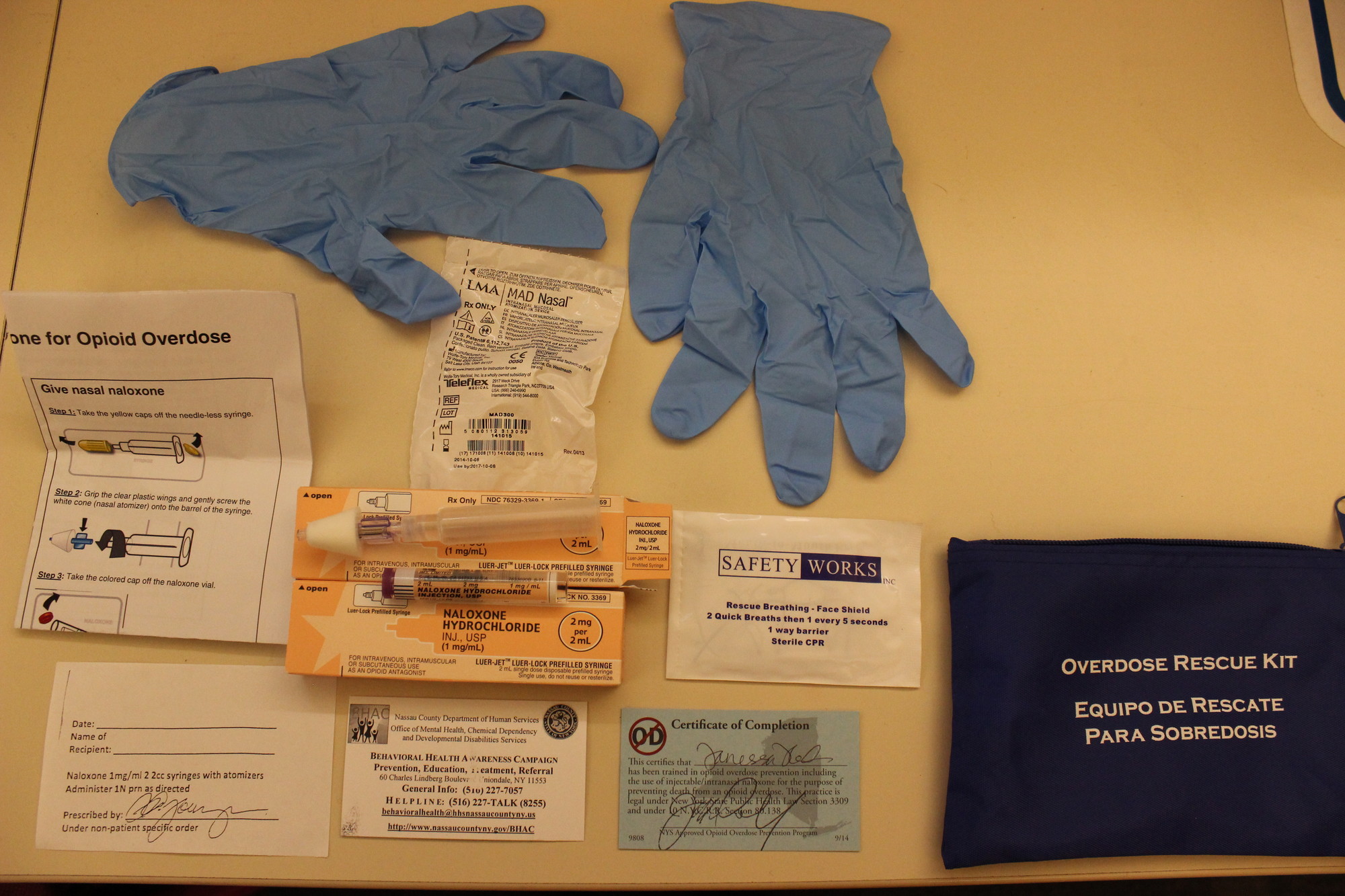Grappling with drug addiction
Narcan training proves helpful in saving lives
Two months ago, John Faulhaber, of Atlantic Beach, lost his son to a drug overdose.
“There is a stigma of a low-life attached to those who die from overdoses,” he said. “My son was not a low-life. He was 35. He overdosed at his desk in his office in Manhattan.”
Faulhaber wants more people to be trained in overdose death prevention. He was one of about 30 people who attended a free overdose prevention seminar at the Five Towns Community Center on Feb. 4. Attendees were taught how to administer Narcan, a lifesaving antidote used to prevent opioid overdose deaths. Opioids include painkilling drugs such as Vicodin and methadone as well as heroin, which directly affect the heart.
According to county statistics, at least 190 Nassau residents died from heroin and prescription painkiller overdoses in 2014. Physicians and first responders have used Narcan for years to save lives, but a state law passed in 2006 allows civilians to use it without risk of liability. Since 2012, about 6,000 people in Nassau County have been trained as Narcan administrators and more than two dozen trainees have treated overdose victims, saving their lives.
Those who successfully complete the training program are given Narcan kits and certification cards identifying them as Narcan administrators. The kits contain two doses of Narcan, nasal spray tubes, directions on how to administer a dosage, a plastic protective face film, latex gloves, a prescription slip for Narcan refills and information on contacting the county’s Department of Health Services.
At last week’s seminar, several survivors of overdoses and their family members spoke about their experiences. Samantha, 25, of Levittown, described how she was able to get clean thanks to using Narcan.
“Mine is a family disease,” she said. “Narcan saved my life. Everyone who needs it should have it available to him or her. I feel different — normal for once. The drugs do not discriminate. We get sucked in and we’re scared to try to get help. If we could just get past our initial fears and let someone help us through programs like this, we could get clean faster and for longer. If I can get clean, anyone can.”

 48.0°,
Overcast
48.0°,
Overcast 




